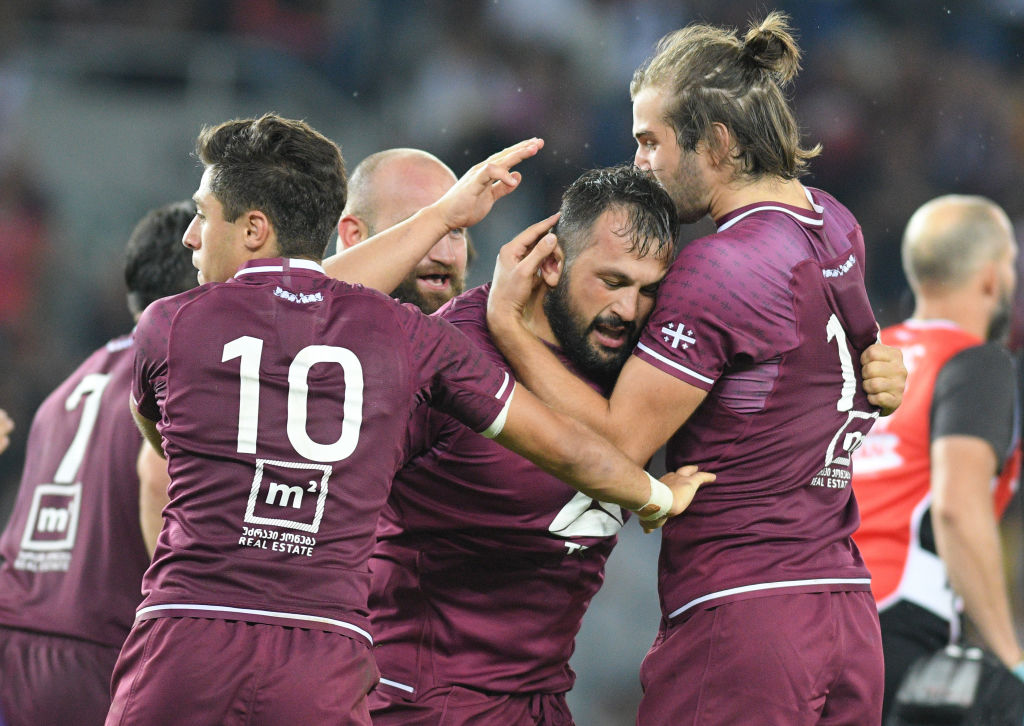Georgia on my mind: The business of rugby

Fans back packing stands, pints flowing, and roofs being raised. International rugby’s back and, as the inaugural Autumn Nations Series draws to a close, the on-pitch balance of power between the hemispheres seems delicately poised.
Away from the pitch though, tensions exist as to the direction the sport should take post-pandemic.
A tough 2020 for rugby union was bookended by tales of two Georgias, 6,000 odd miles apart, that give an insight into the conflicts that lie ahead.
In February last year, in the southern state of the US, new Major League Rugby franchise Rugby ATL, from Atlanta, played just five games of their debut season before lockdown struck.
Come October, the national side of the former Soviet state headed west to take part in the hastily improvised Autumn Nations Cup, alongside the Six Nations teams and Fiji.
When it comes to rugby union’s future, though, which Georgia do the games’ various power brokers have on their mind?
On one hand, the expansion of MLR to include new teams suggests the sport might be on the cusp of a breakthrough in the United States, a sense reinforced by 40,000 turning out to see the US Eagles host the All Blacks in Washington D.C. recently.
On the other, Georgia are stuck in a rut. Having won nine of the last 10 Rugby Europe Championships (losing the other final by a point), their dominance of the sport on the continent below Six Nations level is total.
Yet an invitation to join the Six Nations continues to elude them, either to become a seventh nation or to depose Italy, who currently sit two places below them in the world rankings.
Of course, it’s not really about the Georgias per se; it’s about competing visions of where the game’s future lies.
As financial pressures enveloped rugby union through the pandemic, the prevailing view became that new audiences must be engaged and, crucially, new revenue streams unlocked.
This is in no small part driven by the arrival of private equity in the sport.
Readers of City A.M. will be well aware of the ruthless efficiency with which private equity hunts a return.
Indeed, CVC Capital Partners’ decade or so in Formula 1 means sports fans require little convincing of their capabilities either.
In March this year, CVC paid £365m for a one-seventh share in Six Nations Rugby, adding to the 27 per cent share they bought in Premiership Rugby in 2018.
However, the levers they pulled in Formula 1 to increase the sport’s earning potential – increasing staging fees and adding grands prix to the schedule in places like Abu Dhabi, Singapore and Sochi – are not available in rugby union.
Put bluntly, interest remains comparatively low outside of the core rugby nations and the top players, on whose shoulders broadcast and commercial interest rests, can’t play any more games.
So, if there are no more games, the challenge must be to gain greater control over the existing schedule as well as making fixtures more valuable.
When it comes to scheduling, the creation of the Autumn Nations Series is a clear indication Six Nations Ltd wants a season-round international presence beyond their spring showpiece to mark their contribution to World Rugby’s ambition for a unified calendar.
Financially, CVC will recall that broadcast revenues increased significantly in F1 as the sport embraced pay TV to the extent it is now exclusively live on Sky in the UK bar the British Grand Prix, shown on Channel 4.
The Six Nations unions also enjoyed a long and fruitful relationship with Sky albeit this Autumn Nations Series has been shown, outside of Ireland, exclusively on Amazon Prime Video.
At the same time, however, BBC and ITV will share live coverage of the Six Nations until at least 2025.
But then? Moving the Six Nations to pay TV would be controversial. But it would generate significant additional revenue.
This could help fund the opening-up of potential new markets for the Six Nations including, of course, the United States.
Rugby’s long-term commercial potential in the States seems destined to mean the likes of Georgia’s Rugby ATL of MRL will become more strategically important pawns in the sport’s global development than Georgia, the 13-times Rugby Europe International champions.
But to paraphrase some other inhabitants of Georgia, is it the end of the rugby world as we know it?
Neil Hopkins is global head of strategy at M&C Saatchi Sport and Entertainment